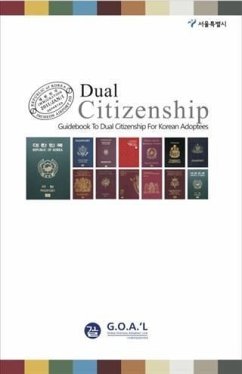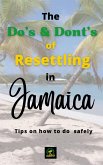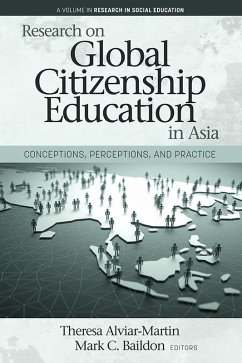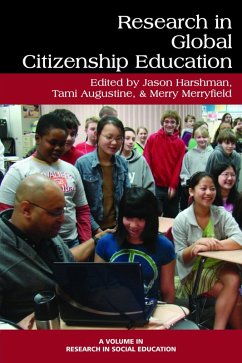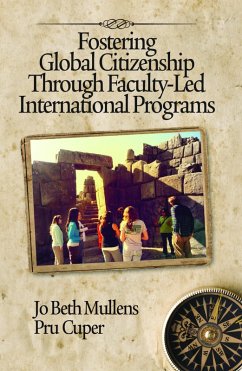It is possible to apply for Korean Citizenship as per immediate. There are a few conditions though. Currently applications are supposed to be accepted only within the Republic of Korea. Also, only permanent residents (Fx-visa holders) can apply. Furthermore G.O.A.'L has tried to receive confirmation that the status of an "orphan" guarantees to be exempt from service but was not able to do so. For this particular reason G.O.A.'L recommends all male adoptees who may be eligible for active military duty to wait for the Military Law Revision (submitted by Congressman Kim Chung-hwan) to be passed by the National Assembly.
An information booklet will be published in December 2010 which contains vital information about the advantages/disadvantages of Dual Citizenship for Korean adoptees. Since allowing Dual Citizenship is a precedence in the world of international adoption, many things will continue to change - a work in progress. G.O.A.'L promises to communicate all changes as accurate as possible to the international adoptee community. G.O.A.'L intends to publish the "Guidebook to Korean Citizenship" also in an electronic form (English, French) early 2011.
Currently the following countries allow Dual Citizenship: Australia, Belgium, Canada, France, Germany, Italy, Luxemburg, the Netherlands, Sweden, Switzerland, the United Kingdom, U.S.A.
Only Norway and Denmark do not allow Dual Citizenship.
G.O.A.'L recommends to apply via its citizenship services. All services are free of charge for G.O.A.'L members. G.O.A.'L is authorized to translate documents that needs to be handed in to immigration office. The Ministry of Justice recognizes G.O.A.'L as the official counseling center for Korean adoptees.
If you are interested in receiving more information please send an email to daewon.wenger@gmail.com
About the campaign
In Fall 2007 G.O.A.'L officially started this campaign by researching information about dual citizenship. On May 15, 2008, Global Overseas Adoptees' Link (G.O.A.'L) officially launched its global campaign to obtain dual citizenship rights for Korean adoptees holding foreign nationalities as a result of their overseas adoption. At present, this granting of such dual citizenship could positively affect Korean adoptees holding citizenship in the following countries: Australia, Canada, France, Italy, New Zealand, Switzerland, the United Kingdom, USA and possibly Belgium, Germany, The Netherlands, and Sweden.
Historical background
Since 1956, officially more than 160,000 Korean babies and children have been sent for foreign adoption to at least 14 different countries. Although about two-thirds were sent to the United States, significant populations of Koreans were adopted to Europe, Canada and Australia. Additionally, an unknown number of Korean children were adopted through privately arranged adoptions. International adoption from Korea is still ongoing.
Global Overseas Adoptees' Link (G.O.A.'L) was founded in 1998 by adult Korean adoptees who returned to Korea to learn about their origins. As such, G.O.A.'L has played an integral part in raising awareness about adoption, providing education to adoptees, adoption professionals, as well as average Korean nationals through volunteer opportunities with the organization. Over the past decade, many returning adoptees have chosed to live in Korea for extensive periods of time studying, working, searching for birth families, and some even getting married and settling in Korea.
In 1999 G.O.A.'L successfully lobbied with Korean adoptee individuals and other interested groups to have Korean adoptees included as benefitting persons of the Overseas Koreans Act, which essentially saw the creation of the F-4 visa. The F-4 has been an important step to providing a means for adoptees to return to Korea to study, live and work freely, almost like Korean nationals. However, it does have limits.
Current situation
At present, the Korean law does not allow dual citizenship. Article 10 of the Nationality Act of 1997 states "a foreigner who has acquired the nationality of the Republic of Korea but maintains a nationality of a foreign country shall renounce the nationality of the foreign country within six months after the acquisition of the nationality of the Republic of Korea."
Furthermore, Article 12 of the same Act states, "A dual national shall select one nationality before he reaches 22 years of age... A person who has had the nationalities of both the Republic of Korea and a foreign country by birth or by dint of the provisions of this Act (hereinafter referred to as a "dual national") before he reaches his full twenty years of age shall select one nationality before he reaches his full twenty-two years of age; and a person who becomes a dual national after he reached his full twenty years of age shall select one nationality within two years."
Today in Korea, Korean adoptees are considered to be foreigners, though they never voluntarily chose to abandon their Korean citizenship. Many Korean adoptees have a strong interest to be part of the Korean people and by obtaining Korean citizenship once again, this step could make civil engagement possible as it would give adoptees the right to vote. At the same time, adoptees should not have to choose abandoning their adoptive country's citizenship. Many adoptees received much love, care and a good education from their adoptive families and country. Consequently, it is unfair to ask them to sever this link with their respective nationality.
The Ministry of Justice has finished its revision of the nationality act. At the public hearing from 25th August 2009 the revised bill was presented and a group of experts spoke about various issues surrounding multiple citizenship. The revised bill is supposed to be submitted to the National Assembly in October 2009. In order to get it passed, much lobby work needs to be done. At the same time G.O.A.'L will conduct some more research into the needs and demands of Korean adoptees. One survey was initiated just prior to the public hearing and has generated since then much interest. With another survey G.O.A.'L will try to find out what the opinions of Korean adoptees are.
Exisiting issues to be addressed with regard to dual citizenship
With regard to dual citizenship, there are some existing challenges to be examined, discussed and resolved. For example, the issue of nationality also implies loyalty to one's country. However, it is clear that for adoptees, most, if not all, have loyalty for both their adoptive countries and Korea, the land of their birth and land of their ancestors. Adoptees seeking to have their Korean citizenship reinstated are ready to accept and manage the rights and obligations involved by both nationalities.
This campaign acknowledges the issue of mandatory military service for males in Korea. Korean immigration authorities are concerned with dual citizenship being misused to escape one's military obligation. It is important to note that under International Law, Korean adoptees were considered "orphans" at the time of their adoption abroad. Therefore, this status exempts adoptees from having to serve in the Korea military. Not all adoptees were adopted though on so-called "orphan family registries".
Benefits of dual citizenship
By granting the right to dual citizenship status to Korean adoptees the Korean government could set a new and very important precedence affecting hundreds of thousands of international adoptees worldwide. Korea was the pioneer in creating the international adoption program and setting the standards for such a successful program. It can retain and improve upon such status now, in the present day, by changing its laws to consider adoptees as legal national Koreans. Korean adoptees represent a new type of "Global Korean" by speaking many different languages and having the cultural knowledge of the countries they were adopted to. Consequently, the introduction of dual citizenship for Korean adoptees would benefit Korean society by greatly increasing the level of Korea on a global level and in terms of multiculturalism.
In addition, dual citizenship would benefit Korean adoptees on an emotional and symbolic level, by giving them a larger and more complete sense of belonging. Examples of how dual citizenship is currently affecting the lives of today's well-known people in public affairs include California Governor Arnold Schwarzenegger (holds both Austrian and American citizenship) and French Minister of Justice and Mayor of Paris' 7th arrondissement Rachida Dati (citizen of France and Morocco). Ms. Dati is a of the successful integration of the North African community in France. These examples prove that the presence of citizens holding dual nationality can be an asset for the country, especially for a country like Korea who values the quality of its community.
Advisors to the campaign
This campaign is supported by an advisory board consisting of Lee Jong-hoon (President of the Institute of Governance and Management, Ph.d in Political Science) and Professor Lee Chulwoo (Yonsei University, Ph.d in Law). Their knowledge is essential for the entire campaign. Also supporting this campaign are members of the Korean National Assembly, Congressman Kim Chung-hwan and Congressman Kim Sung Gon.
Dieser Download kann aus rechtlichen Gründen nur mit Rechnungsadresse in A, B, BG, CY, CZ, D, DK, EW, E, FIN, F, GR, HR, H, IRL, I, LT, L, LR, M, NL, PL, P, R, S, SLO, SK ausgeliefert werden.

